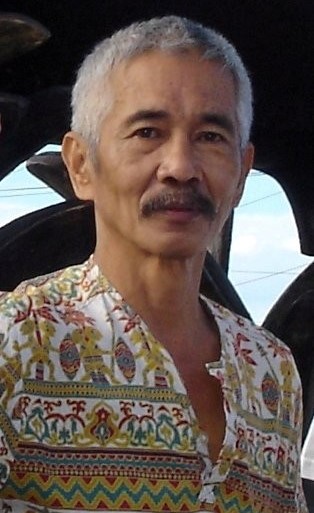TWO CENTS
By Dong Delos Reyes
People and places
Share
People make the place. For better. Or worse.
Fact is, people infect their environs with what they are. Pigs turn any place into a pigsty. Turn it into a mirror of themselves. Their habits become a habitat.
A portion of the national highway that skewers through Tarlac province is lined on both sides with open stalls selling an assortment of smoked fish (tinapa) or fattened mud crabs. The fish must have been procured from coastal towns quite far from Tarlac; one surmises that lean crabs must have been bought from such towns, then, grown fat in the irrigation canals coursing through Tarlac's croplands.
In contrast, the right-of-way stretch leading to a passel of riverside resorts in Pakiling (a sitio that lazes downstream of Ipo Dam) can only boast of mulcting stations. Putative owners of land tracts beside such right-of-way exact toll fees from eco-tourists that stray there. That ensures that tourist pockets go lighter by a few hundreds of pesos before repairing to the riverside resorts.
By the way, pakiling is another name for is-is, hagupit, Ficus hispida, whose leaves are used for scouring wooden floors, stairs, walls, kitchen utensils, and what have you.
Ipo Dam's downstream parts can allow strictly small-scale aquaculture, say, a dozen or so fish cages for tilapia or bangus, maybe even snakehead or catfish. These produce can be sold to tourists, strictly domestic tourists, dear. Foreign tourists are likely to howl over the legality of right-of-way toll fees. There are no tourist accommodations for overnight stay. Bring your own baon- not much food available in those resorts.
The more enterprising can raise crayfish (uluhan, ulang) that can rake in a few hundreds of thousands of pesos-- a YouTube spiel claims that millions of pesos can be had from crayfish. But that entails commercial production and would be a tourist eyesore.
Sure grouper (lapu-lapu) in cages can be fattened in such pristine waters- go strictly small-scale, preferably near the river bank.
Or silver perch (ayungin) can thrive in such unpolluted waters.
Trouble is, so-called landowners whose putative properties laze beside the right of way leading to the riverside resorts are more intent on mulcting visitors aching for riverine sights and a whiff of fresh air.
People, people make a place. Or turn the place as a showcase of themselves.
Editor’s note: The opinions expressed in the foregoing article are solely the author’s and do not reflect the opinions and beliefs of the Philippine News Agency (PNA) or any other office under the Presidential Communications Office.
Comments
About the Columnist

Dong A. de los Reyes began his writing journey in 1978 as a business reporter. He tacks over 20 writing awards- five from the Don Carlos Palanca Memorial Awards for Literature- for his forays into fiction, poetry, and dramaturgy. He also describes himself more of a soil scientist than agronomist. He is a keen student of the combat arts, with a second degree black belt in gojukai, which was developed by a peasant from Okinawa named Chojun Miyagi. He is married to a campus beauty queen who bore him three sons and a daughter. They have six grandchildren, two of whom are taekwondo black belts.
